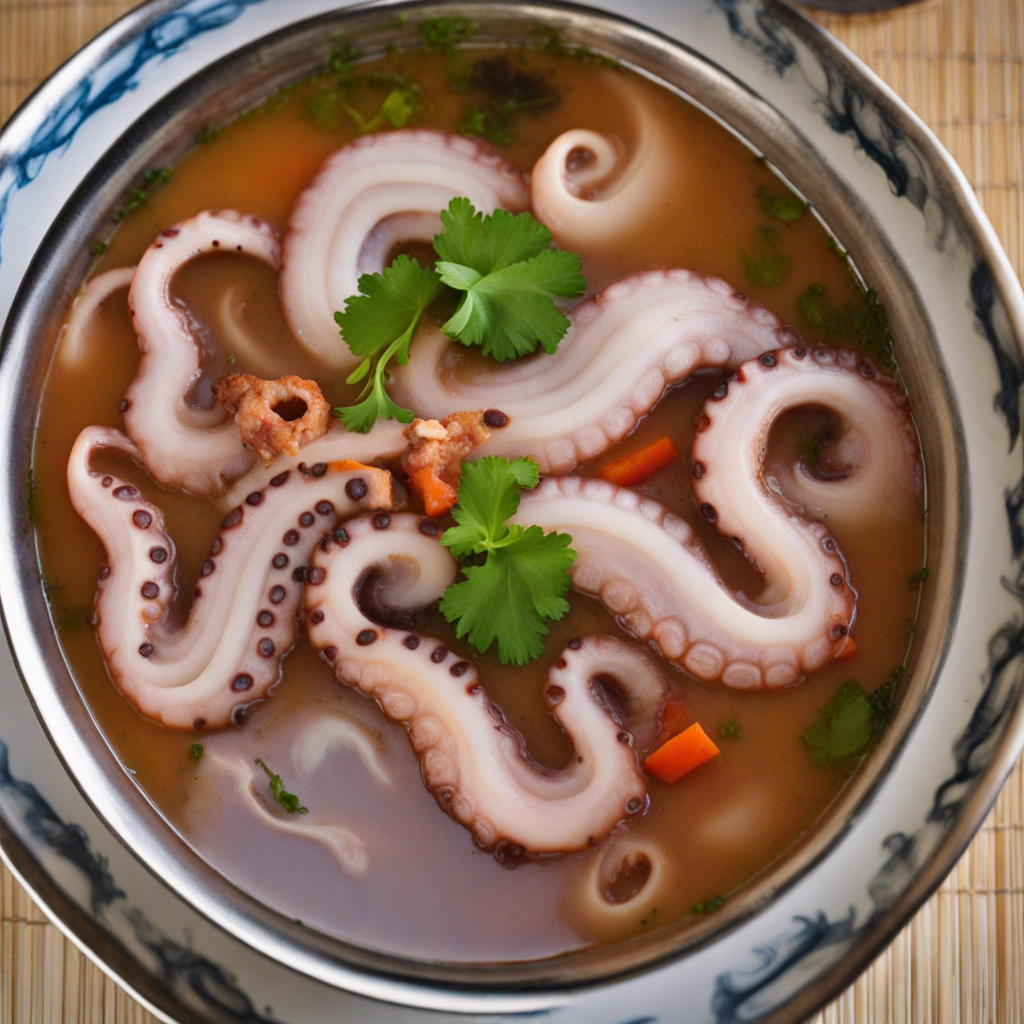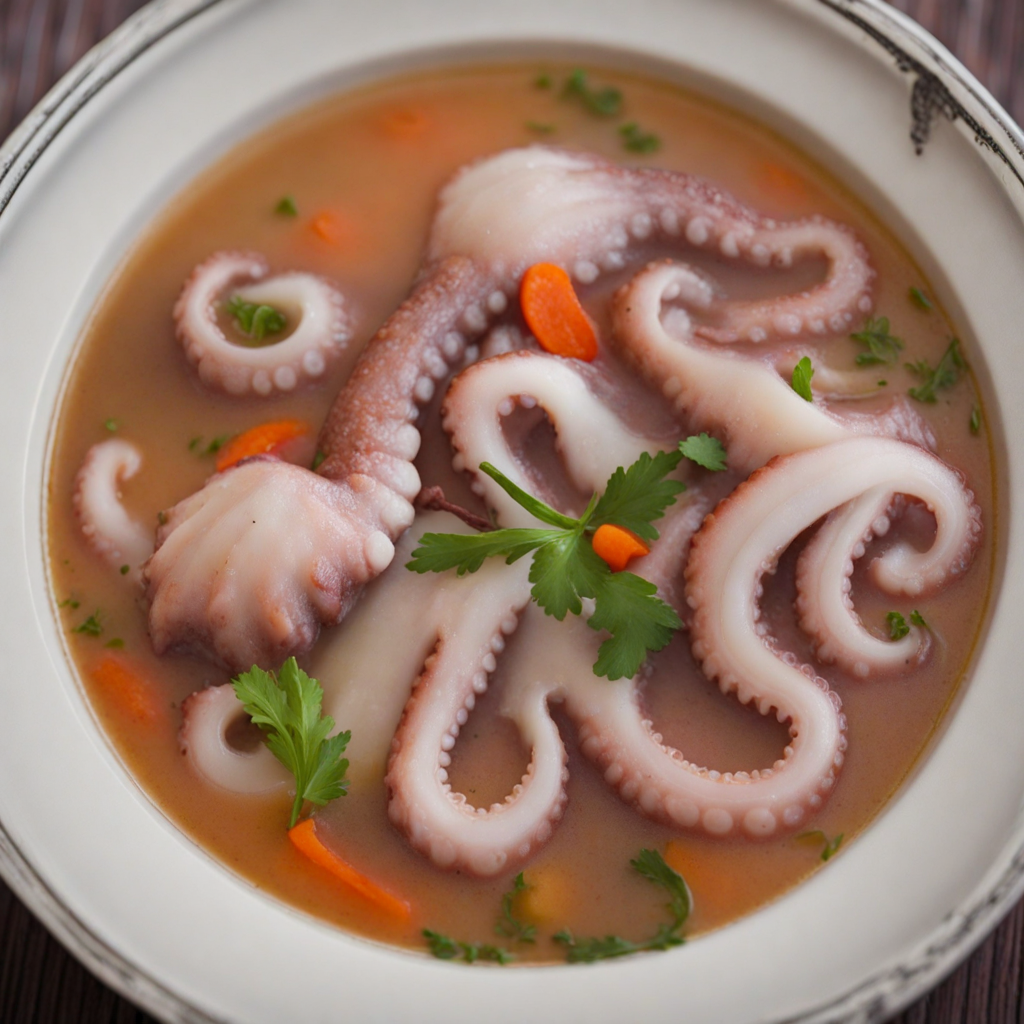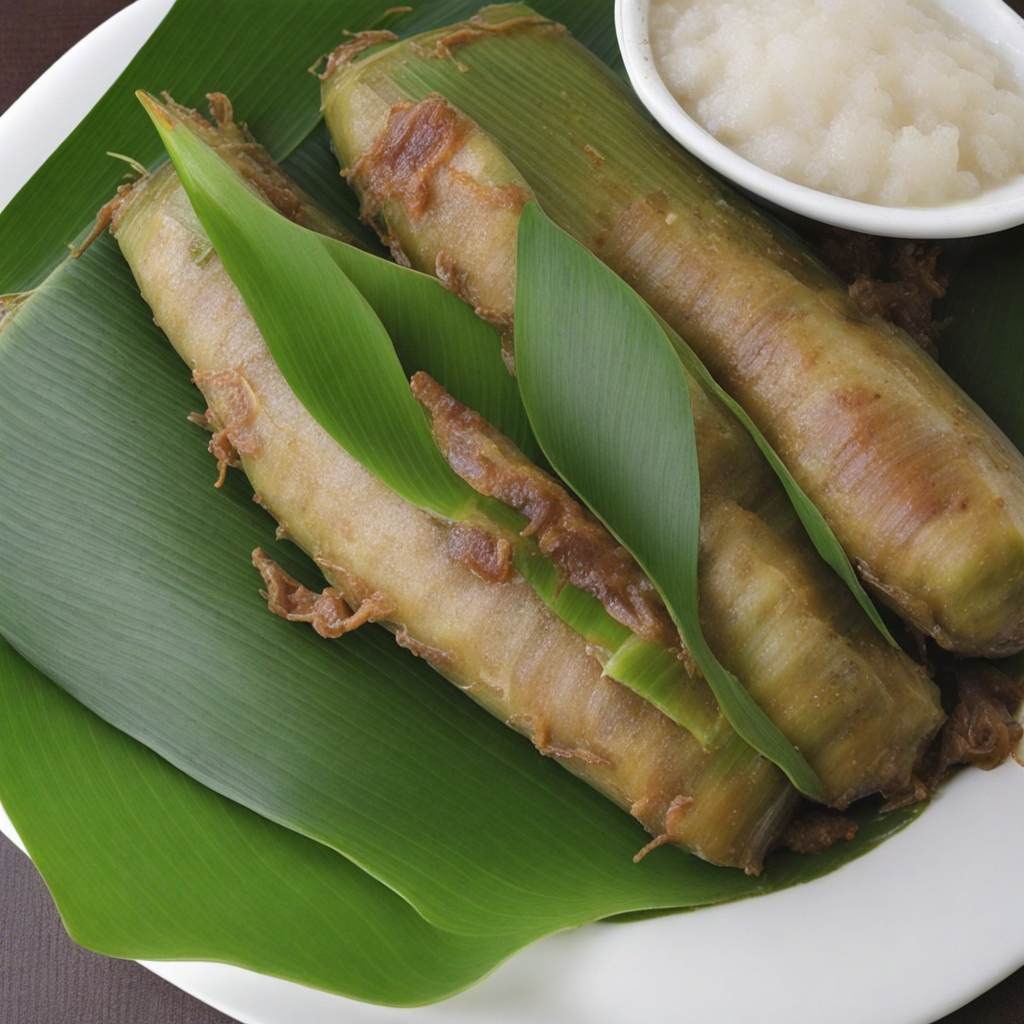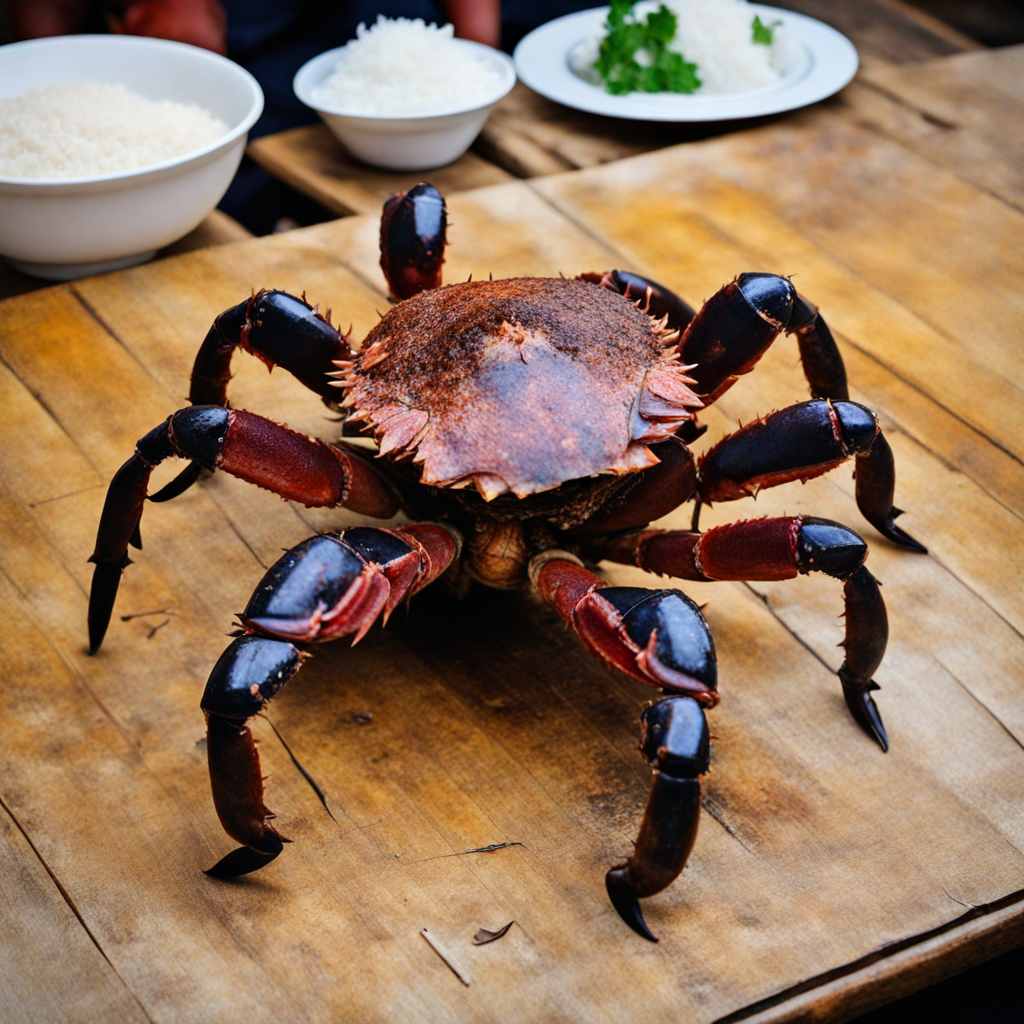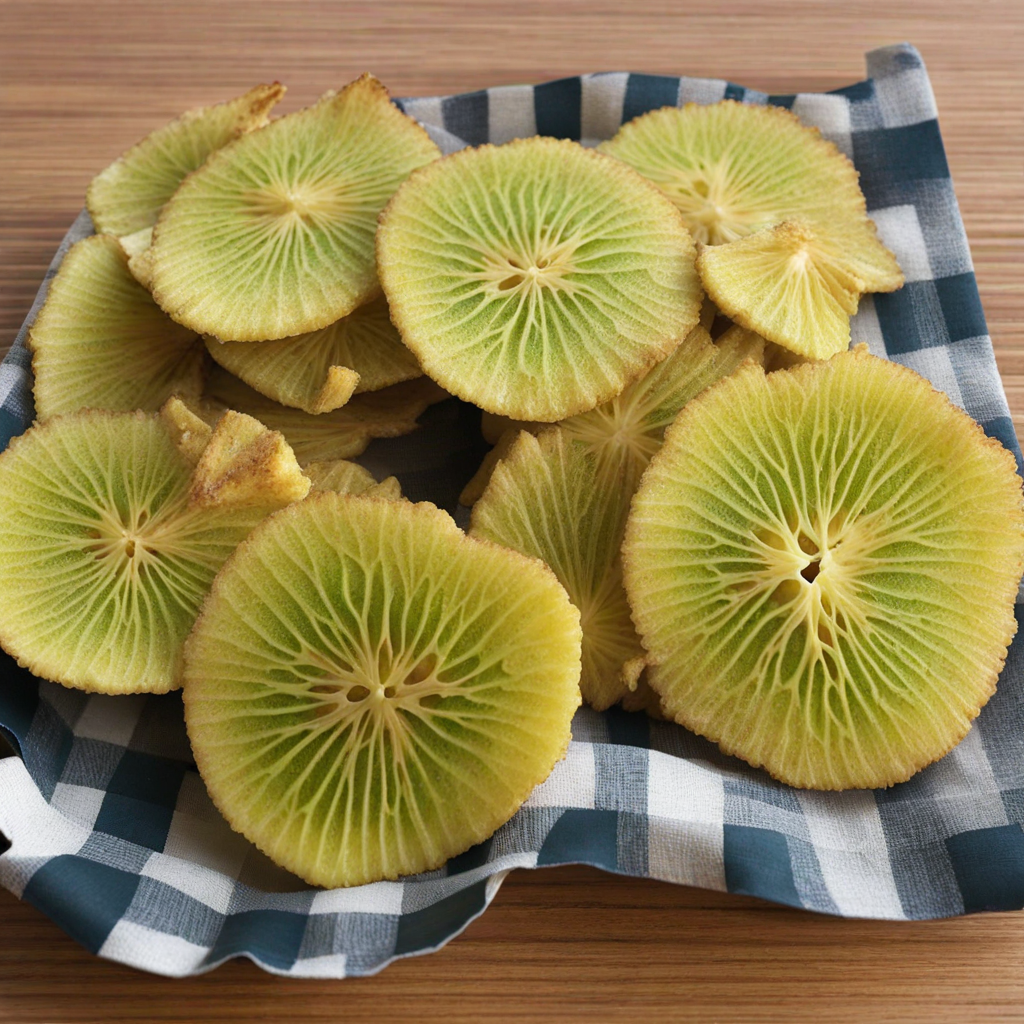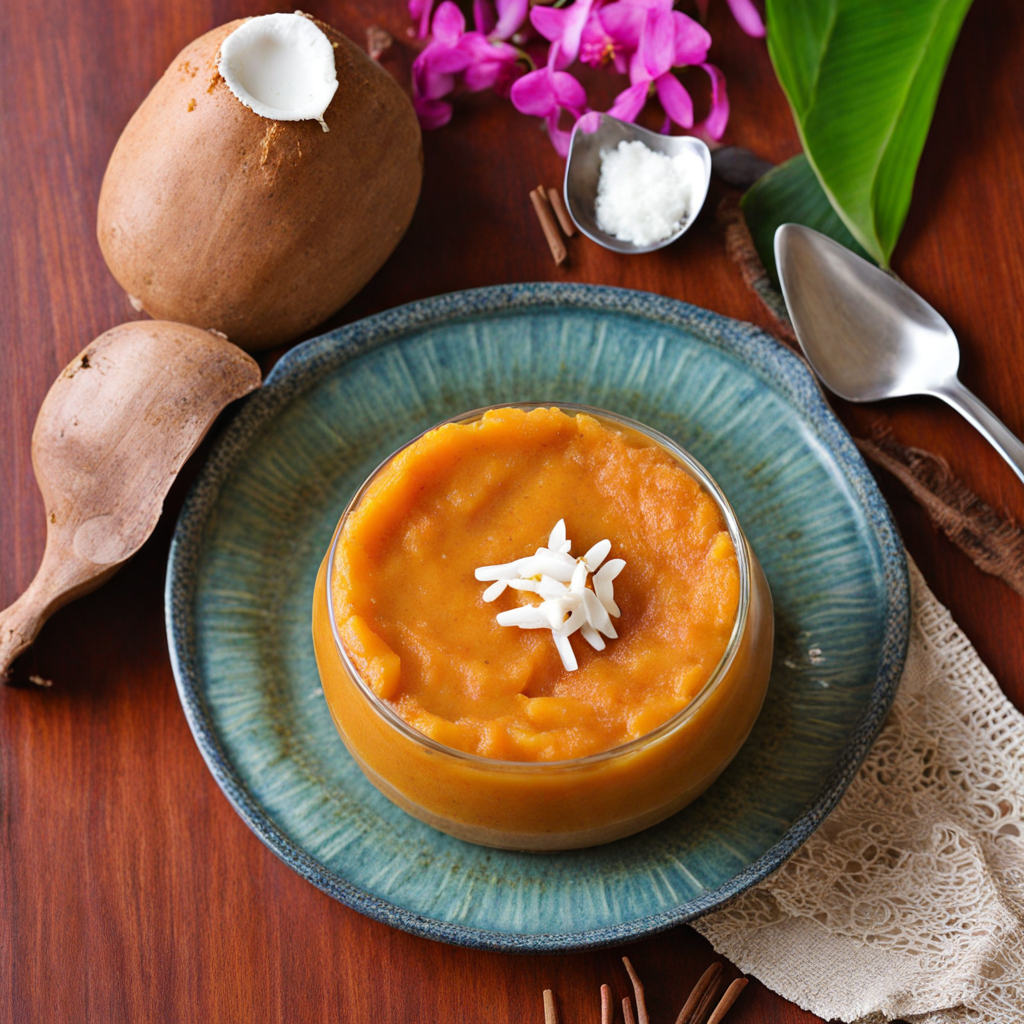Octopus Soup
Octopus Soup from Tuvalu is a delightful culinary experience that embodies the essence of the Pacific Islands. This dish features tender octopus, which is often marinated and simmered to perfection, allowing the natural flavors of the sea to shine through. The octopus is typically paired with a rich, savory broth made from a blend of local herbs, spices, and coconut milk, which adds a creamy texture and a hint of sweetness. The use of fresh, island-grown ingredients ensures that every spoonful bursts with vibrant flavors and aromas that transport you straight to the shores of Tuvalu. As you delve into this comforting soup, you'll find that the octopus is not just a protein but a centerpiece that absorbs the broth's essence, making each bite an explosion of taste. The addition of vegetables, such as taro or sweet potatoes, provides a hearty base, while a touch of chili pepper can introduce a subtle kick, balancing the richness of the coconut milk. The dish is often garnished with fresh herbs like cilantro or green onions, adding a refreshing contrast to the warm soup. Enjoying Octopus Soup is more than just a meal; it’s a celebration of Tuvalu’s culture and its connection to the ocean. The communal aspect of sharing this dish with family and friends enhances its appeal, making it a cherished part of gatherings and special occasions. Whether served as a starter or a main course, Octopus Soup is a unique taste of Tuvalu that invites adventure and exploration into the world of Pacific flavors.
How It Became This Dish
Supo Feke: A Culinary Treasure of Tuvalu #### Origins and Cultural Context Supo Feke, a traditional dish from the island nation of Tuvalu, is a rich and flavorful seafood soup that has deep cultural roots in the Pacific Islands. Tuvalu, composed of nine small islands, has a population that relies heavily on fishing, coconuts, and taro, making seafood a staple of their diet. The origins of Supo Feke can be traced back to the early Polynesian settlers who arrived in the region, bringing with them their culinary traditions and techniques that would evolve over centuries into what we recognize today. The name "Supo Feke" translates to "octopus soup" in Tuvaluan, highlighting one of its principal ingredients. The octopus, or "feke," holds significant cultural importance in Tuvalu as a symbol of resourcefulness and adaptability. Traditionally, fishing for octopus was not only a means of sustenance but also a communal activity that fostered bonds among families and neighbors. The gathering of ingredients for Supo Feke often served as an occasion for storytelling and sharing, reinforcing the strong community ties that are characteristic of Tuvaluan society. #### Ingredients and Preparation The core ingredients of Supo Feke typically include fresh octopus, coconut milk, various local vegetables, and aromatic seasonings. The octopus is usually caught by hand during low tide, a practice that demonstrates the local knowledge of the tides and marine life. Once caught, the octopus is cleaned, tenderized, and cut into bite-sized pieces. Coconut milk, a vital component of many dishes in Tuvalu, adds creaminess and richness to the soup. It is made by grating fresh coconut meat and mixing it with water, then straining to extract the milk. Other vegetables commonly used in Supo Feke include taro, sweet potatoes, and various types of leafy greens, showcasing the island's agricultural diversity. The preparation of Supo Feke typically involves simmering the octopus in coconut milk along with the chopped vegetables. Seasonings such as salt, pepper, and sometimes chili are added for flavor. The result is a hearty, nourishing soup that epitomizes the flavors of Tuvaluan cuisine. #### Cultural Significance Supo Feke is more than just a meal; it embodies the essence of Tuvaluan culture and hospitality. Sharing food is a fundamental part of Tuvaluan life, and Supo Feke is often served during communal gatherings, celebrations, and family feasts. The dish is a symbol of generosity, as it is made in large quantities to ensure that everyone can partake. In Tuvalu, food is also intrinsically linked to social status and identity. The ability to catch and prepare octopus is often viewed as a skill that reflects one’s connection to the land and sea. Mastery of traditional dishes like Supo Feke is passed down through generations, ensuring that the culinary heritage of Tuvalu remains vibrant and respected. Moreover, Supo Feke has become a part of Tuvalu’s national identity. As globalization continues to influence food practices worldwide, traditional dishes like Supo Feke serve as a reminder of the importance of preserving local customs. Efforts are being made to promote Tuvaluan cuisine, particularly among the younger generations, to foster pride in their culinary heritage. #### Evolution Over Time Throughout its history, Supo Feke has evolved while maintaining its traditional roots. The basic recipe has remained largely unchanged, but the introduction of new ingredients and techniques has added layers of complexity to the dish. For instance, while octopus remains the star ingredient, some modern variations incorporate other seafood such as fish or shrimp, reflecting the changing availability of marine resources. The impact of climate change and overfishing has also influenced the preparation of Supo Feke. As certain fish populations decline, Tuvaluans have had to adapt their fishing practices and explore alternative sources of protein. This adaptability is a hallmark of Tuvaluan culture, showcasing their resilience in the face of environmental challenges. In recent years, there has been a growing interest in Tuvaluan cuisine beyond its shores. Culinary tourism is slowly emerging in the region, with visitors eager to experience the unique flavors of the Pacific. Supo Feke has become a highlight for those looking to taste authentic Tuvaluan food, often served in local restaurants or prepared by families willing to share their culinary traditions with outsiders. #### Supo Feke in the Modern Era In the contemporary culinary landscape, Supo Feke has found a place in both traditional and modern dining experiences. Local chefs are reimagining the dish by incorporating elements of fusion cuisine, blending traditional techniques with international flavors. This creativity helps to keep the dish relevant and appealing to younger generations, who may seek more diverse culinary experiences. Social media has also played a role in the resurgence of interest in traditional foods like Supo Feke. Platforms like Instagram and TikTok allow Tuvaluans to showcase their culinary skills and share their cultural heritage with a global audience. Beautifully presented dishes, along with stories about their significance, help to raise awareness of Tuvaluan cuisine, drawing attention to the importance of preserving its unique flavors and traditions. #### Conclusion Supo Feke is not merely a dish; it is a celebration of Tuvaluan culture, history, and community. As it continues to evolve, it remains a testament to the resilience and resourcefulness of the Tuvaluan people. Whether enjoyed during a festive gathering or as a comforting meal at home, Supo Feke embodies the spirit of Tuvalu—a land where traditions are cherished, and the bond between the people and their environment is honored through the art of cooking. As the world becomes increasingly interconnected, Supo Feke stands as a delicious reminder of the beauty of cultural heritage and the importance of preserving it for future generations.
You may like
Discover local flavors from Tuvalu


